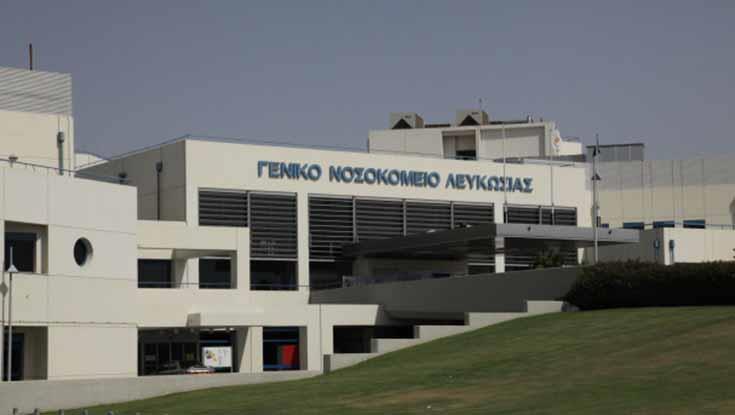The first case of monkeypox was detected in Cyprus on Tuesday, according to a statement released by the health ministry.
The person infected is a 40-year-old man, who tested positive to monkeypox following a molecular laboratory test carried out by the microbiology laboratory of the Nicosia General Hospital.
The man had a recent travel history and presented clinical symptoms compatible with monkeypox.
The health ministry statement confirmed that all relevant protocols for the transport and management of the confirmed case were activated and that the 40-year-old is currently being kept in isolation and monitored at the Nicosia general hospital, the designated reference hospital for monkeypox.
Earlier on Tuesday, the health ministry published its monkeypox management plan, which gives a description of the disease and its symptoms and how it is transmitted.
The full document can be read (in Greek) here.
“Early diagnosis, isolation and effective contact tracing and information are key to addressing the spread of the virus in the community,” it reads.
The text also lays out how suspected and confirmed cases will be handled from now on.
Anyone with symptoms including fever, headache, muscle pain, back pain, lymphadenopathy, chills, and exhaustion, followed by a rash appearing one to five days after the onset of symptoms, will be considered a suspected case and required to have a PCR test.
All suspected monkeypox cases will have to be seen by a doctor and referred to the A&E of the closest state hospital, where they will then be redirected to Nicosia general reference hospital for further tests and diagnosis.
Those testing negative will be discharged, while those testing positive will either have to isolate at home or remain in hospital for treatment if deemed necessary. People who cannot isolate at home will be transferred to state quarantine.
In addition, the first confirmed cases are likely to be required to stay in hospital so they can be monitored.
The ministry said that those with additional risk of serious illness, such as people with HIV or other conditions affecting their immunity system must be closely monitored and may be given antiviral drugs.
All isolating cases will be monitored with daily phone calls and will be allowed short trips outside of the house as long as they cover their rashes and wear a mask.
They must remain isolated until their rashes subside, which signifies they are no longer infectious. If they live with others, they must remain confined to a single area and have their own designated utensils and other household items that are not shared by others.
They will also have to avoid contact with pets, particularly rodents, to prevent transmitting the disease.
For a confirmed monkeypox case to be released from isolation, they will need to be evaluated by their personal doctor to confirm their rashes have healed. This could range from two to three weeks.
As regards contacts, they will not be required to self-isolate in the initial stages, but they will be monitored with daily phone calls.
Vaccination of close contacts will be available towards the end of August and all close contacts will be given the option to get the jab within four days of their first contact with the case.
The vaccination period can be extended up to 14 days after contact with a confirmed case to reduce the chance of severe symptoms in contacts who become infected.
Asymptomatic close contacts and health professionals who came into contact with the case will have the right to vaccination as a priority.
The contacts will then receive via text a unique code they will have to use to arrange a vaccination appointment, after consulting with someone at the designated vaccination points, which can be found in the ministry’s letter.
The government was expected to receive around 1,400 doses of the monkeypox vaccine at the start of this week but health ministry spokesman Constantinos Athanasiou told CNA this would take a little longer countries with more cases would be given priority.
In general, a health ministry source told CNA that no mass vaccinations are expected as the virus is not easily transmitted. The vaccine is recommended for health professionals dealing with confirmed monkeypox cases or their contacts.
An emergency meeting was called in late July at the Nicosia general reference hospital for monkeypox, two days after the World Health Organisation declared monkeypox as a global public health emergency. It was attended by representatives of the state health services organisation (Okypy) who presented the management plan regarding the screening, transport and hospitalisation of the suspect cases.
It was decided that as a first stage, ten beds at the Nicosia general hospital will be assigned for suspected and confirmed cases of monkeypox as part of the national management plan, media reported after the two-hour meeting.







Click here to change your cookie preferences